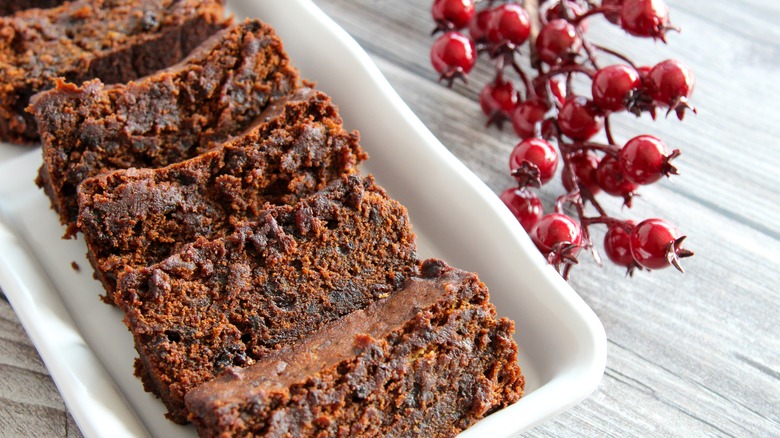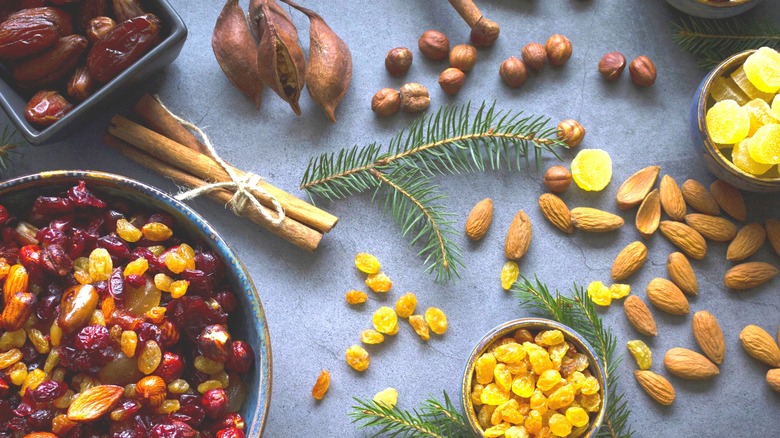How Caribbean Black Cake Utilized Local Ingredients To Make It A Staple Sweet
Like many regional specialty foods, Caribbean black cake is a product of its environment. That's not to say it doesn't have a history, albeit an altered one, based on transitory practices such as colonization and migratory workers, both voluntary and indentured. In fact, Emily Dickinson's black cake recipe became part of her legacy. The semi-savory dessert is a descendant of English and Irish-style fruitcakes. The cake bears great influence from local Caribbean ingredients, including rum prevalent in island countries such as Jamaica. What makes this cake so unique is how each country adapts the recipe based on their own local customs, cooking practices, and especially, the availability of island ingredients.
Caribbean black cake is an overall dense, boozy, decadent dessert made with local island fruits that have been soaked in rum for up to 12 months, dried, and candied. A process called browning creates a burnt sugar syrup sauce that provides dark coloring and rich flavor. The syrup gets drizzled into the cake immediately before being popped into the oven. Modern-day quickie recipes sometimes bypass the lengthy soaking process. Instead, these recipes call for letting the fruits absorb the rum or sweet wine either overnight or for a couple of days.
The warm spices and nuts, such as kola nuts, cinnamon, nutmeg, bay leaves, and the unusually impactful flavor of tonka beans are more identifying features of black cake. Not every country's Caribbean black cake utilizes grated tonka bean, but in the ones that do, it's a taste worth remembering.
Caribbean black cake flavors, fruits, and fancy tales
Tonka beans work similarly to vanilla as a flavoring agent but they're described as a glorious palette. The beans paint a flavor simulation of sweet almond and vanilla scents mixed with a pear flavor essence. Tonka beans are essentially a dried, wrinkled seed texturally resembling a date with hints of honey and caramel. When warm, they can even have smoky floral tones.
As for the fruits in a Caribbean black cake, common favorites for soaking include dried fruits such as cherries, currants, prunes, and spirit-friendly raisins, along with citrus peels from lemons or oranges. These fruits generally flourish in the summer, just in time for the months-long preparation of holiday, wedding, and special-occasion black cakes. Variations based on local ingredients can range widely per island from the addition of rose water in Jamaica or multiple fruit and almond extracts specific to Grenada.
Black cakes hold such esteem in Caribbean countries that a recent novel by author Charmaine Wilkerson, titled "Black Cake," was named a Best Book of 2023 by NPR, the New York Times, and others. It spawned a Hulu series by the same name, with both the novel and the series telling a lifelong story of love, tragedy, family secrets, and outrageous lies, all through the symbolic mechanism of creating a black cake. The main character even buries her husband with a slice of the enigmatic cake and leaves one in the freezer for her children before she dies.

